
Zac Sinasac, just finishing his first semester of graduate study in automotive engineering, is grateful for the opportunities he has been afforded.
“I say thank you as much as I can to the people who have supported me,” he says, listing faculty, family, friends — and donors to scholarships for UWindsor students.
Sinasac says the $1,000 Shawn Yates Memorial Award helped inspire him to excel.
“It’s a motivation, because you’re being rewarded and recognized for your efforts,” he says. “Sometimes you’re so deep in your books that you don’t realize people take notice.”
He made the effort to learn more about Yates, a UWindsor alumnus (BASc 1982, MBA 1992) who helped to found the Windsor Engineering co-op program with the Fiat Chrysler Automobiles’ Automotive Research and Development Centre (ARDC) before his death in July 2017.
— Published on Dec 20th, 2020

There are 35.11 million vehicles registered in Canada out of which 12.55 million are registered in Ontario. Simultaneously, Canada’s population is 37.59 million out of which Ontario hosts 14.57 million people. This might all look good in terms of the economy; however, it is troubling when you consider that eight molecules of CO2 are released for every molecule of burned gasoline in an internal combustion engine. That translates to the average vehicle emitting approximately 4.6 metric tons of CO2 per year.
In 2005, automotive pollution was responsible for 20 per cent of the European Union’s CO2 emissions, roughly 60 per cent of which can be attributed to private automobiles. The EU legislation has set mandatory emission reduction targets for new cars in order to meet the targeted 95 grams of CO2 per kilometer by 2021, a significant drop from the 130 grams per km recorded in 2015. Still, this is not sufficient, and hydrogen may be a possible solution. Hydrogen can have a significant role in providing better environmental sustainability as it combusts clean in the presence of oxygen and the output is water. Sounds great, right? So, why are we not using hydrogen as fuel yet?
— Published on Jan 5th, 2021
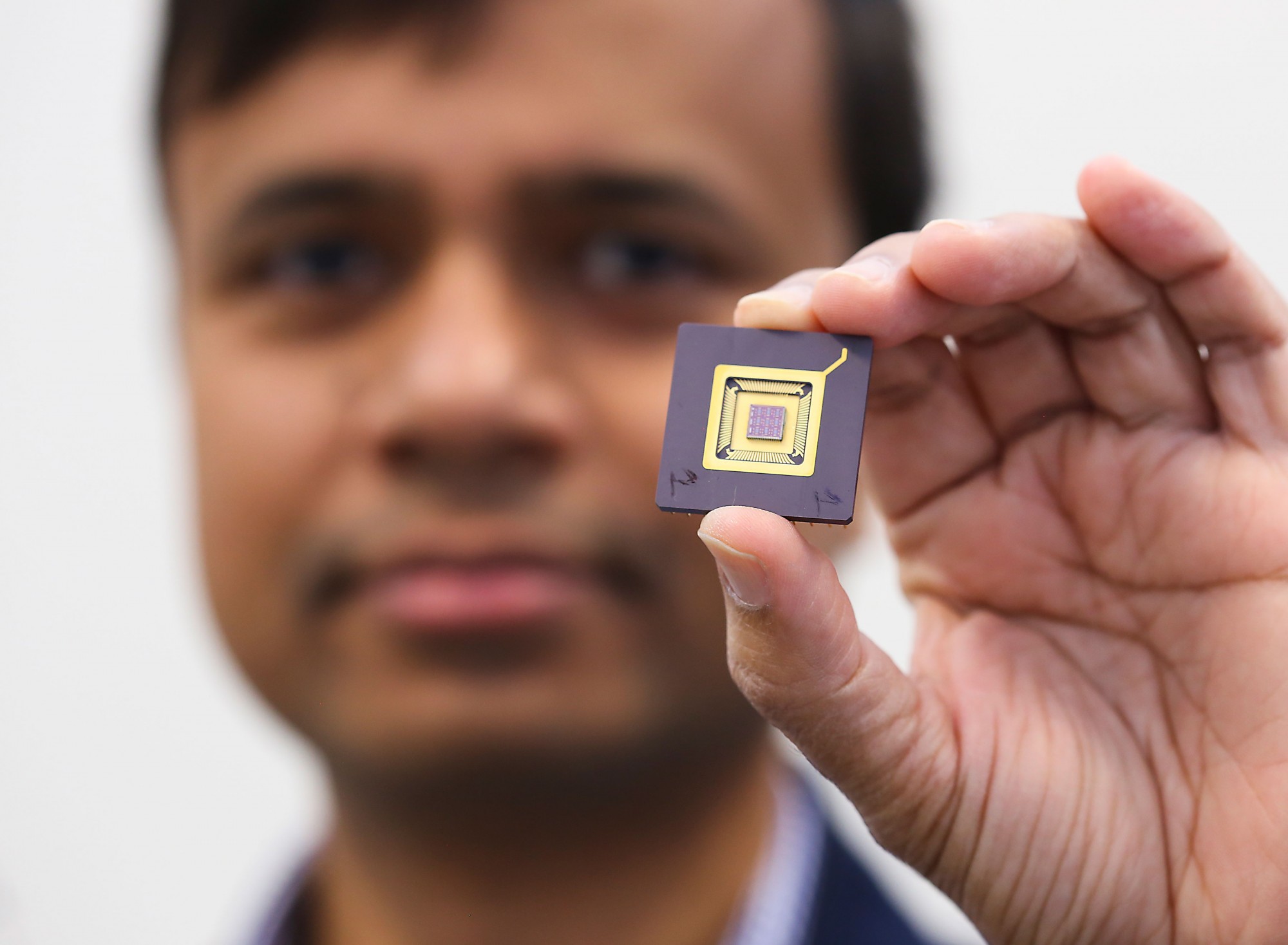
A University of Windsor engineering professor is turning to nature to inspire his research. Dr. Jalal Ahamed and his team in the Micro Nano Mechatronic Research Lab are working on technologies that replicate the stabilizing, rapid wingbeats of a bee and the echoes bats use to navigate and forage.
The research group has designed a microchip with microscopic wings that flap at high speeds at a set frequency when electrical wires apply voltage. When a change in orientation or motion is detected, the thin, gold-coated, silicon wings will alter their flapping speed.
— Published on Jan 5th, 2021

With a surge in renewable energy generation, researchers worldwide are pushing to innovate methods that combat the technology’s intermittent nature.
One of the solutions is energy storage and is the focus of an international cluster of leaders in offshore energy and storage spearheaded by the University of Windsor and University of Nottingham. For the past five years, the Offshore Energy and Storage Society (OSESS) has met annually to exchange ideas and foster collaborations that will propel the integration of renewable energy and storage technologies.
“We’ve relied on the inertia of big fossil fire and nuclear plants in the past, but energy systems are changing and how that future system is going to work is still an open question. Grid integration, storage and other technologies are going to be critical,” says Daniel Laird, director of the United States National Wind Technology Center and National Renewable Energy Laboratory and keynote speaker at OSESS’s 2019 Offshore Energy and Storage Summit.
Tonio Sant, an associate professor at the University of Malta and member of the OSESS technical committee, says without energy storage, it’s impossible to reach 100 per cent penetration of renewable energies.
— Published on Dec 20th, 2020
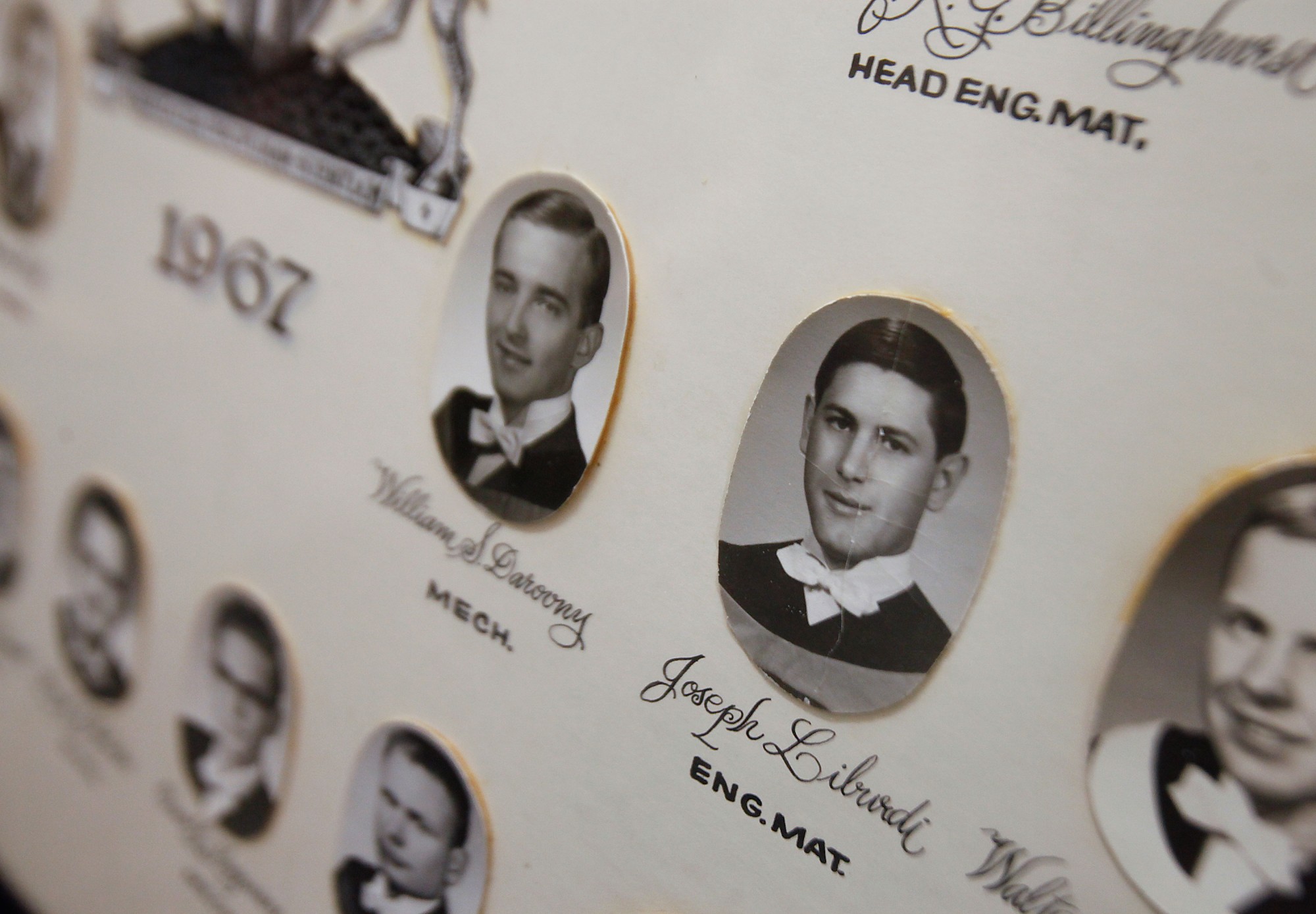
As an engineering student at the University of Windsor, Joe Liburdi honed his multi-disciplinary skills and acquired his technical confidence. Now, as the president of his own global enterprise, Liburdi wants to ensure future students have the opportunity to follow in his footsteps.
“The University of Windsor’s challenging multi-disciplinary materials program and one-on-one attention with my professors gave me the tools I needed to establish Liburdi Engineering Limited as an innovative technology leader in global markets,” says Liburdi BAsc ’67, who produces advanced welding and coating systems for turbine, aerospace and power generation components.
“They challenged me to always be the best.”
— Published on Jan 5th, 2021
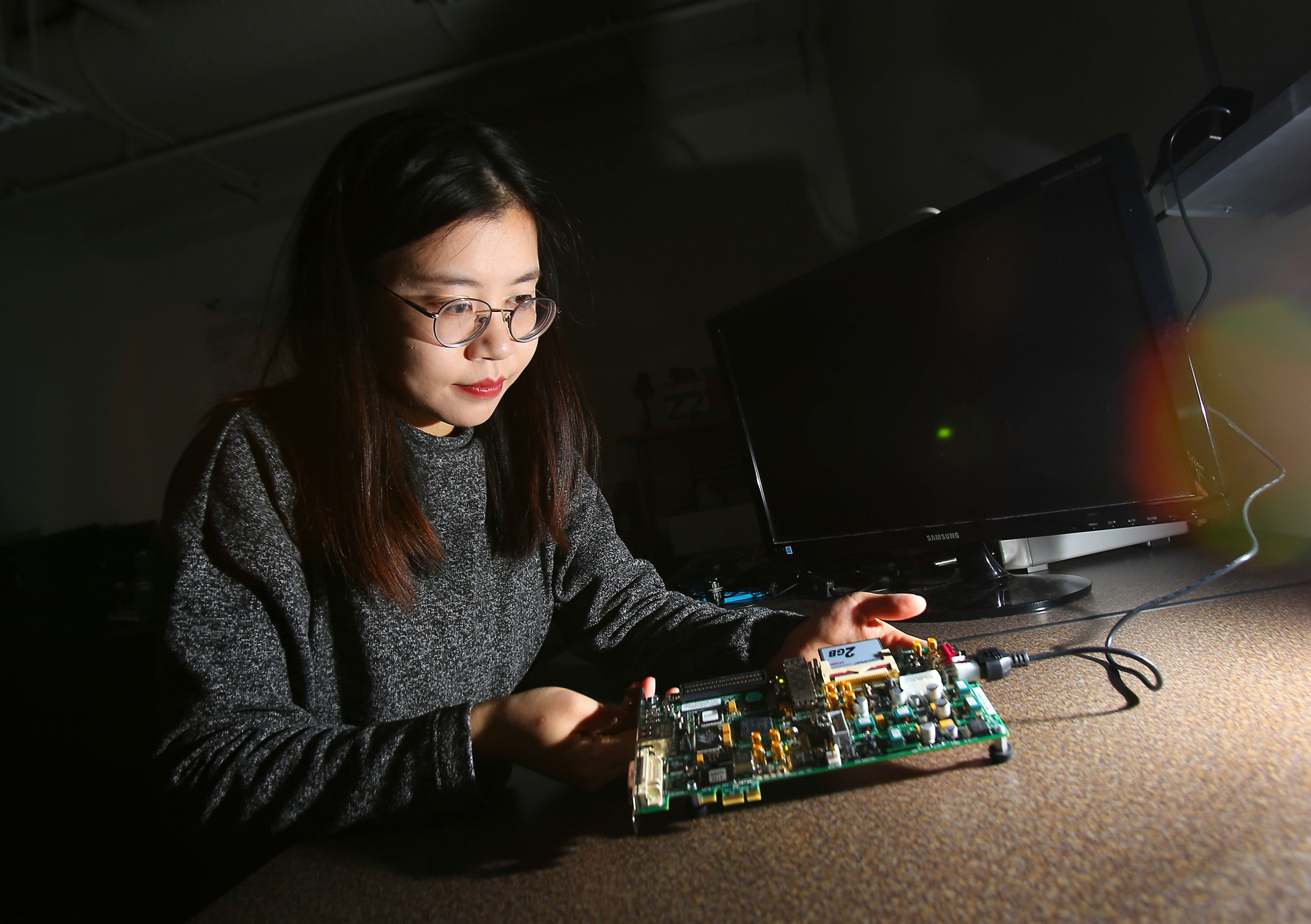
Companies are well aware of the environmental benefits of electrifying vehicle fleets, but how much is known about the security of these systems?
A University of Windsor researcher aims to dig deeper through the investigation of cybersecurity issues that arise when using electric vehicle fleets with battery charging infrastructure.
“The environmental, geopolitical and financial advantages of electric vehicles are well-studied and addressed in many research publications. However, security of these systems is not given the full attention that it requires,” says Dr. Mitra Mirhassani, the project lead and associate professor who specializes in electrical engineering.
Amazon announced in fall 2019 the largest order of electric delivery vehicles ever, according to David Clark, Amazon’s senior vice president of operations. The world’s largest retailer purchased 100,000 electric delivery vans from Rivian, a Michigan-based start-up. While companies like Amazon are making the switch to electric fleets, municipalities are preparing with plans to add infrastructure to accommodate the surge in consumer and corporate investments in alternative fuels. The City of Windsor is looking to set up 11 dual-port electric vehicle (EV) charging stations across the municipality, according to a 2019 city council report.
— Published on Jan 5th, 2021

Pamela Nadin-Mcintyre was introduced to the importance of innovation and its role in business at a young age.
As a daughter of a Windsor tool and die business owner, she remembers watching her dad brainstorm and execute countless ideas to drive business and stay competitive.
Decades later and three provinces away, she is the innovation lead — in addition to safety, technical safety, and risk management — for Canada’s largest independent crude oil and natural gas producer, Canadian Natural Resources Limited (Canadian Natural).
“My dad’s the one who really helped push me in this direction,” says Nadin- McIntyre BASc ’86.
In addition to ensuring the right systems are in place to maintain the safety of people across Canadian Natural’s operations, she leads dedicated teams that are focused on improving the company’s environmental performance through technology and innovation. And for someone who is passionate about the environment, it’s more than just a job.
— Published on Jan 5th, 2021
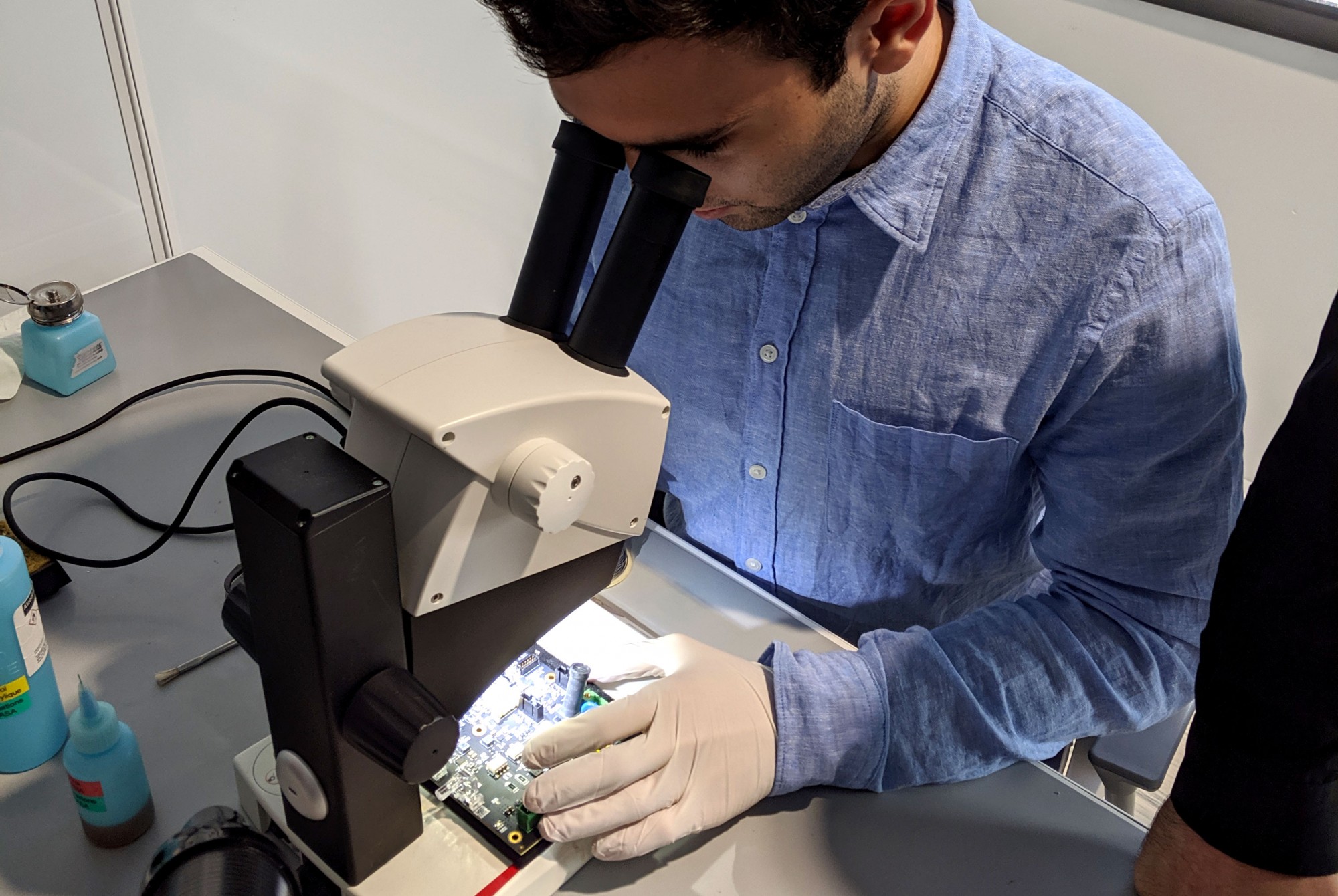
A team from the University of Windsor received top marks from the judges in the design review portion of the Canadian Satellite Design Challenge, in October in Quebec City.
The competition requires students to develop a satellite that can take a photo from space when commanded to do so by amateur radio operators around the world. It is intended to advance space education in Canada, inspiring students to pursue science and engineering educations and careers.
The satellites will undergo full launch and space environmental qualification testing, with the goal of launching the winning satellite into orbit.
In Quebec, teams conducted 2.5-hour presentations to a panel of industry experts.
— Published on Dec 20th, 2020
A UWindsor adjunct professor will be the first Canadian to lead an international educational and scientific organization dedicated to ozone technology.
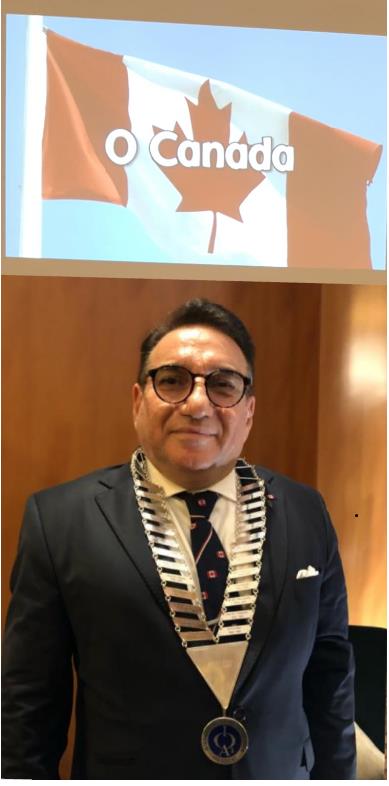 Saad Y. Jasim was inaugurated as the president of the International Ozone Association during its World Congress and Exhibition, held Oct. 20 to 25 in Nice, France. He will start his two-year term as president in January 2020.
Saad Y. Jasim was inaugurated as the president of the International Ozone Association during its World Congress and Exhibition, held Oct. 20 to 25 in Nice, France. He will start his two-year term as president in January 2020.
“It will be my duty to provide education and knowledge to different sectors in the world and make sure that knowledge transfer is the aim of our work,” says Dr. Jasim, who has served as a UWindsor adjunct professor since 1996. “I would like to make a difference. That is what I believe I was able to do in places like Windsor and Walkerton, Ont.”
Jasim introduced ozone to drinking water in Windsor in 2001 when he served as the Windsor Utilities Commission’s director of water quality and production. Since then, the City of Windsor has repeatedly won Best Tasting Water in a competition organized by the Ontario Water Works Association. In 2004, Jasim designed an ozone system in Leamington for a 14-acre greenhouse, recycling more than 25,000 gallons of discharged water.
— Published on Dec 20th, 2020
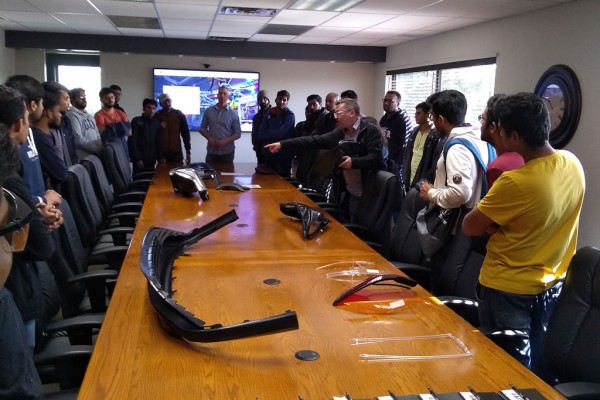
UWindsor Engineering students had the opportunity to participate in Manufacturing Day thanks to the Office of Experiential Learning.
On Oct. 4, Career Development and Experiential Learning organized a bus tour for 46 engineering students to tour manufacturing facilities and learn about their career options.
The annual event is coordinated locally by Workforce WindsorEssex.
Stephanie Dupley, career advisor in CDEL, said students were enthusiastic about their visits to Active Industrial Solutions and Valiant TMS.
— Published on Dec 20th, 2020









 Saad Y. Jasim was inaugurated as the president of the
Saad Y. Jasim was inaugurated as the president of the 